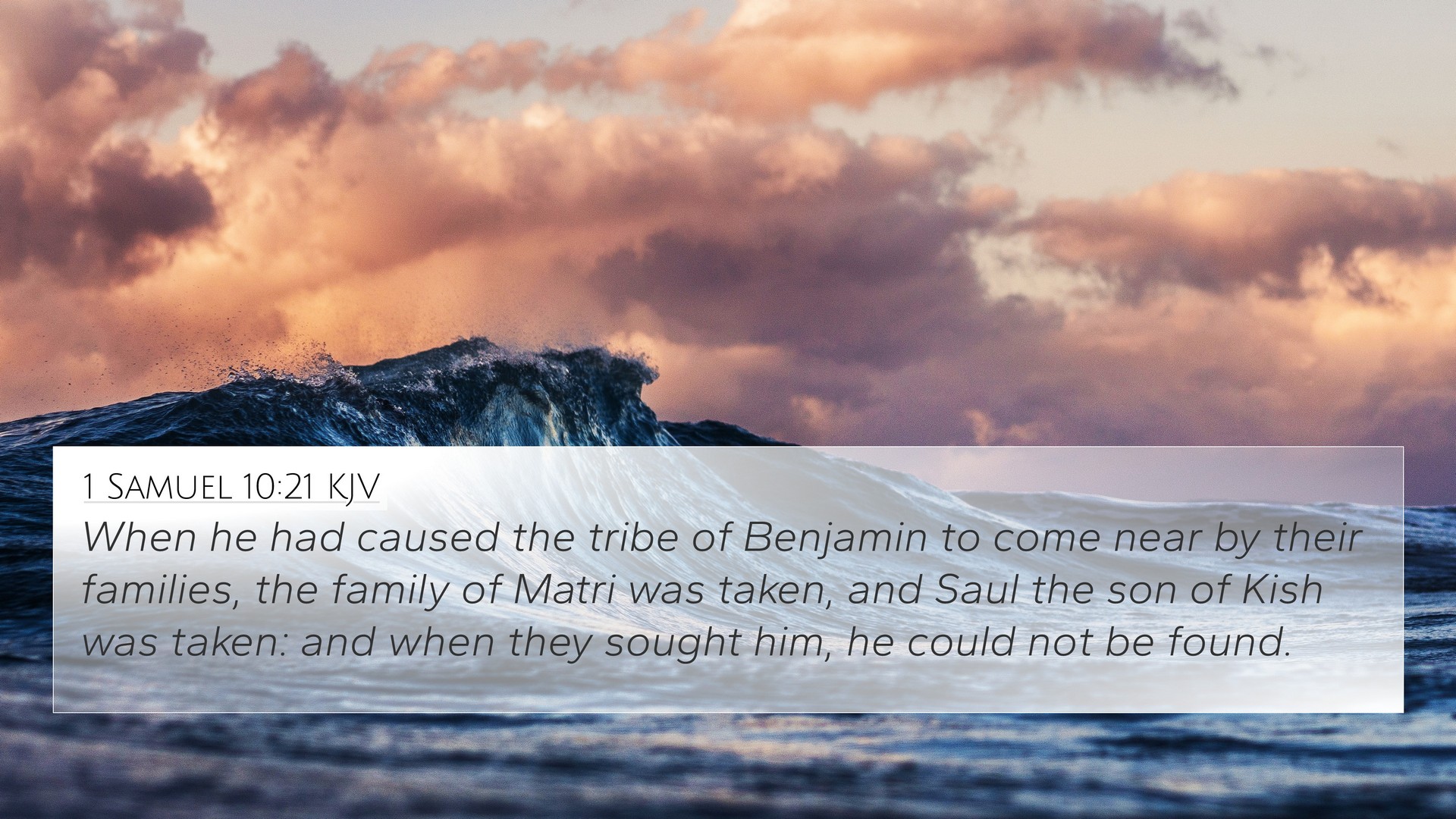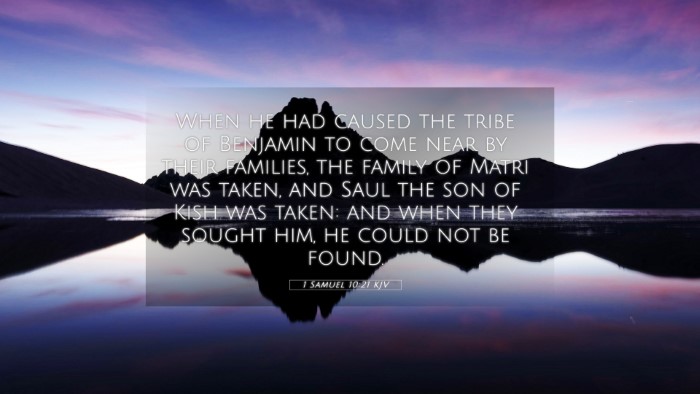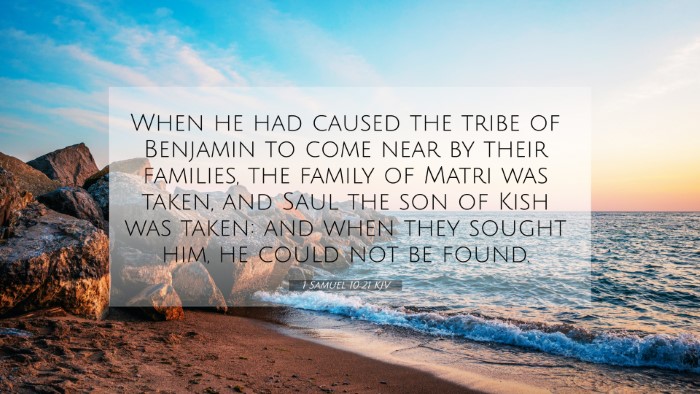Understanding 1 Samuel 10:21
This verse depicts a key moment in Israel's history, highlighting the anointing of Saul as king over Israel. Various public domain commentaries offer insights into the meanings and implications of this passage.
Context of 1 Samuel 10:21
In 1 Samuel 10:21, we find the critical narrative where Saul is presented among the people after having been chosen by God through the prophet Samuel. The verse states:
“When he had caused the tribe of Benjamin to come near by their families, the family of Matri was taken, and Saul the son of Kish was taken; and when they sought him, he could not be found.”
Significance of the Passage
The significance of this passage can be analyzed by looking at several aspects:
- Divine Selection: This verse emphasizes that Saul's kingship was ordained by God, illustrating the theme that leadership is divinely appointed.
- Human Response: Saul’s initial hiding indicates his humility and reluctance to assume a high position, reflecting on human nature when called to a significant purpose.
- God's Sovereignty: The process described shows God’s sovereignty in choosing leaders for His people, as seen through various Old Testament narrations.
Commentary Insights
Matthew Henry's Commentary
Matthew Henry notes that this selection represents a significant turning point for Israel, marking their transition from theocracy to monarchy. His commentary points out that despite Saul's eventual shortcomings, his initial selection serves as a reminder of God’s power in appointing leadership.
Albert Barnes' Commentary
Albert Barnes emphasizes the importance of the tribe of Benjamin and the family of Matri, indicating that God’s choice reveals unexpected paths in leadership. He highlights that Saul’s initial hiding can be seen as a sign of humility, reflecting on how God often chooses the least likely candidates to fulfill His plans.
Adam Clarke's Commentary
Adam Clarke elaborates on the emotional and societal context of Saul’s selection. He describes how Saul being lost was a metaphorical representation of Israel’s own spiritual blindness, and his eventual emergence reflects God revealing leaders in times of need.
Cross-References for Deeper Understanding
This verse has several interconnections with other biblical texts, enriching the understanding of God's selecting leaders and the nature of humility. Some relevant cross-references include:
- 1 Samuel 8:5: The request for a king by the Israelites, setting the stage for Saul's appointment.
- 1 Samuel 9:15-16: God's revelation to Samuel regarding Saul’s future as king.
- 1 Samuel 16:1: God's instructions to Samuel to anoint David, indicating a progression from Saul to another king.
- Isaiah 53:2: Prophesying the humble nature of future leaders.
- Matthew 23:12: Jesus’s teaching on humility, linking to Saul's initial reluctance.
- Romans 13:1: God’s sovereignty over authorities, paralleling Saul's divine appointment.
- Philippians 2:3-4: Encouraging humility among leaders, echoing Saul’s hesitance in stepping into leadership.
Thematic Connections
The themes found in 1 Samuel 10:21 resonate throughout the Bible:
- Divine Appointment of Leaders: From Moses to David, the biblical narrative consistently displays God’s hand in leadership choices.
- The Reluctance of the Chosen: Biblical figures like Gideon and Jeremiah also exhibited hesitance, suggesting a pattern of initial doubt among divinely chosen leaders.
- Humanity's Response to God's Choice: Saul's hiding speaks for many who feel unworthy of their divine calling, a common theme within scriptural narratives.
Conclusion
1 Samuel 10:21 serves as a profound reminder of God’s authority in leadership selection, highlighting the interplay of divine sovereignty and human humility. The insights gathered from different commentaries help illuminate the complexity and richness of this scripture.


